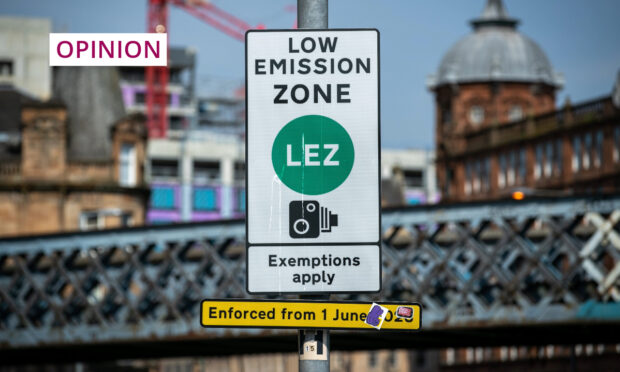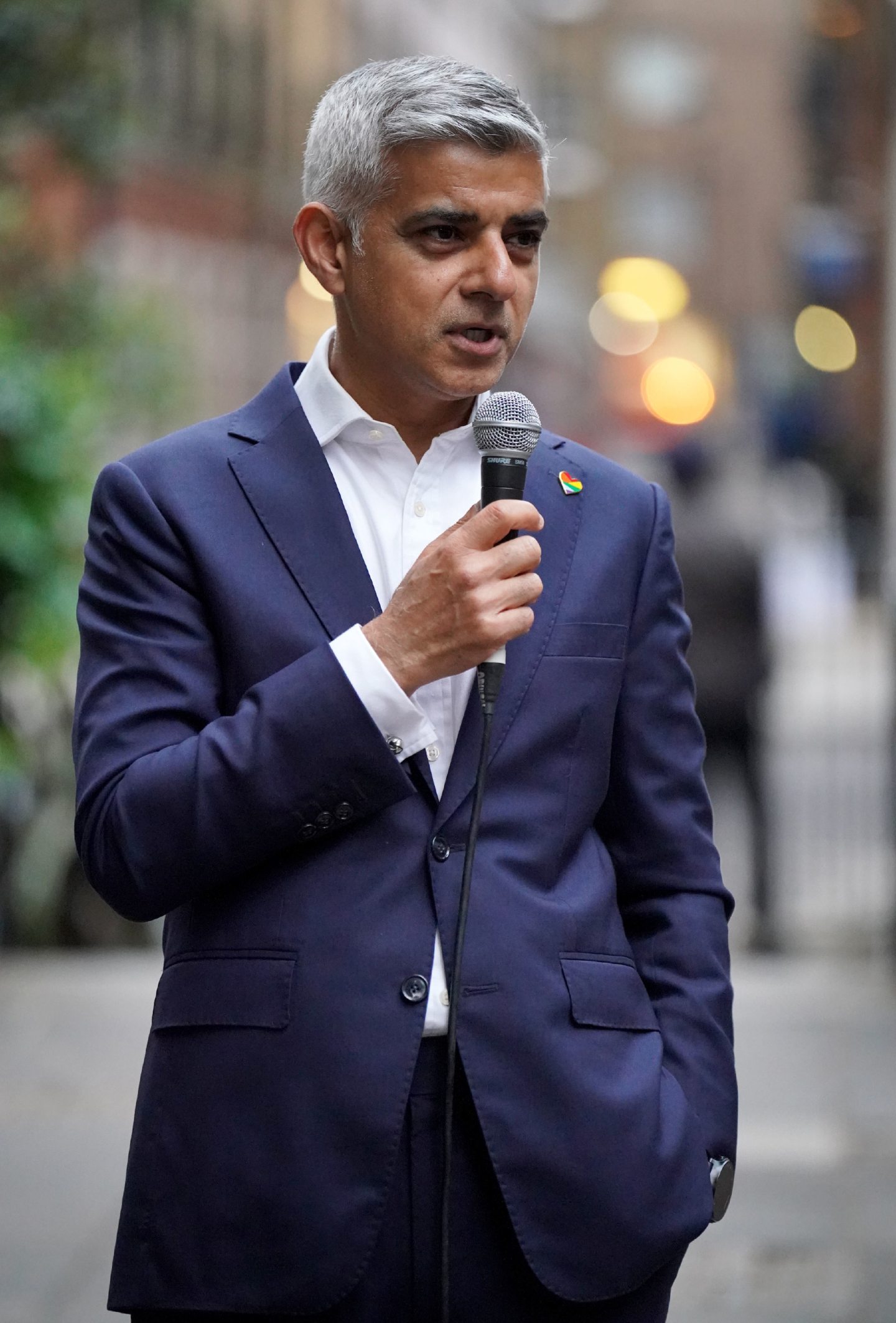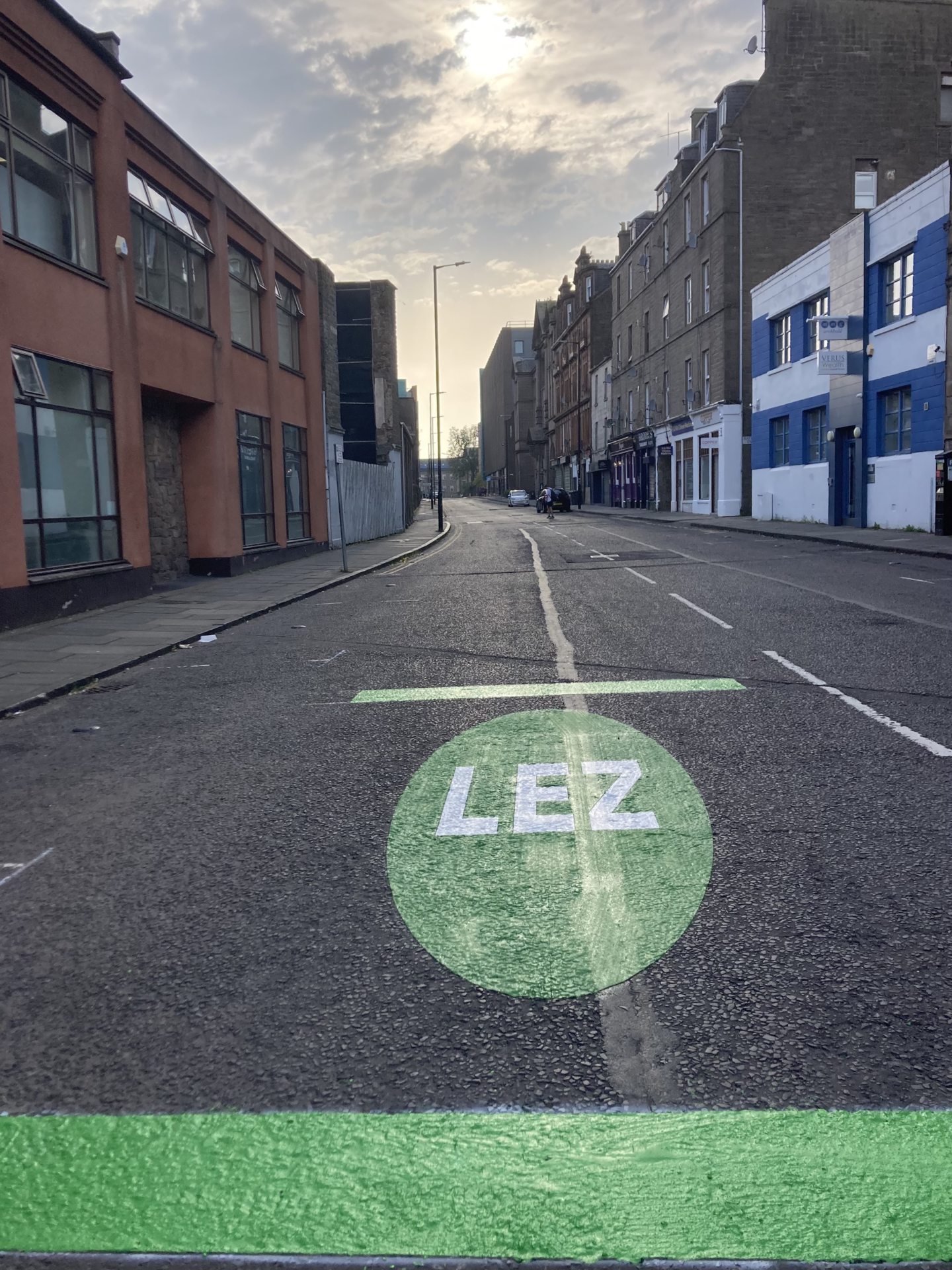It is unusual in our age of polarisation to find a political issue that most people agree on but the need to reach net zero is a rare example of just that.
It unites people regardless of their views on independence or party politics.
It is often thought of as a concern of the young but is actually something that equally exercises the elderly.
It is even – as the COP26 summit in Glasgow showed – an issue that transcends national rivalries and ancient enmities.
What is less unusual is the failure of our political leaders – of all stripes – to deliver, even in spite of this rare consensus.
There is no geographical or legislative limitation to this incompetence.
It afflicts Westminster as much as Holyrood and local government as much as national. And the result of this cack-handed delivery is to strain that rare consensus on the need to reach net zero, perhaps to breaking point.
London Mayor Sadiq Khan’s ULEZ policy, while primarily an issue of air quality, is the most prominent example of this, but he is far from alone in creating division where there was consensus.
Alienating large swathes of population
In Glasgow, we recently learned a first aid charity was blocked from supporting almost 500 patients because its ambulance was not compliant with that city’s low emission zone.
Meanwhile, Glasgow City Council itself had to spend £100,000 of taxpayers’ money to hire vehicles after it emerged much of its own fleet was not compliant with its own emissions policy.
Not content with this, councillors are now proposing to hit commuters with a congestion charge for driving into the city centre as well.
The issue with these policies is not their purpose – people support measures to reach net zero – but where the responsibility for the transition falls.
The reality is that those who can afford an electric vehicle will likely already have one.
Equally, given the dearth of charging infrastructure for electric vehicles, you also must be well off – or, at least, have off-street parking – in order to effectively use one.
Meanwhile, those who cannot afford a swanky new vehicle are increasingly vilified as polluters and financially penalised for, in effect, being less well off.
Subsidies, if they are offered, are usually so pitiful as to be almost meaningless.
Thus, rather than incentivising the transition to net zero, our politicians in fact end up alienating large swathes of the population with blanket, expensive and unrealistic policies.
This failed approach is not limited to local issues but bleeds through into the national picture as well.
Missteps have serious implications
No new offshore wind projects were secured in the UK Government’s most recent auction round because, according to renewables firms, ministers failed to recognise businesses’ increased costs and incentivise accordingly.
This will deal a significant blow – if not render impossible – our target to produce 50GW of offshore wind by 2030.
Equally, rather than bringing business together in a collective national effort, the SNP and the Labour Party’s continued attacks on the North Sea oil and gas industry disincentivises those companies from supporting a transition, putting tens of thousands of jobs and decades of expertise at risk.
All these missteps have obvious and serious implications for our ability to meet our net zero obligations but they are also politically foolish.
Just as Khan’s dictatorial ULEZ expansion lost the Labour Party the Uxbridge and South Ruislip by-election, so too may Glasgow City Council’s congestion charge scheme – not to mention its own emission’s zone shambles – cost the SNP the Rutherglen and Hamilton West by-election.
Equally, both the SNP and the Labour Party risk haemorrhaging votes to the Tories in the north east of Scotland as a result of their antagonistic relationship with the region’s flagship employer.
None of this needs to be this way.
We could properly subsidise the purchase of the electric cars, and properly invest in the infrastructure to make them viable for those who lack off-street parking.
We could offer exemptions from a low emission zone for charities or those providing first aid.
We could ensure, in the case of Glasgow City Council, our own cars are in order before we start targeting others.
Risk breaking rare point of consensus
For now, our political leaders seem incapable of such apparently complex thinking.
In place of nuance and incentive, they offer dogma and penalty, while the need to clean the air in our cities and reduce our emissions grows increasingly urgent.
The remarkable public consensus that exists around net zero has not yet broken despite these failures but it will not hold indefinitely either.
Few will continue to support net zero if it will cost them their job or make them significantly poorer.
Unless our political leaders work to incentivise and support the journey to net zero, they risk breaking a rare point of consensus in our politics, as well as making the transition itself all but impossible.













Conversation